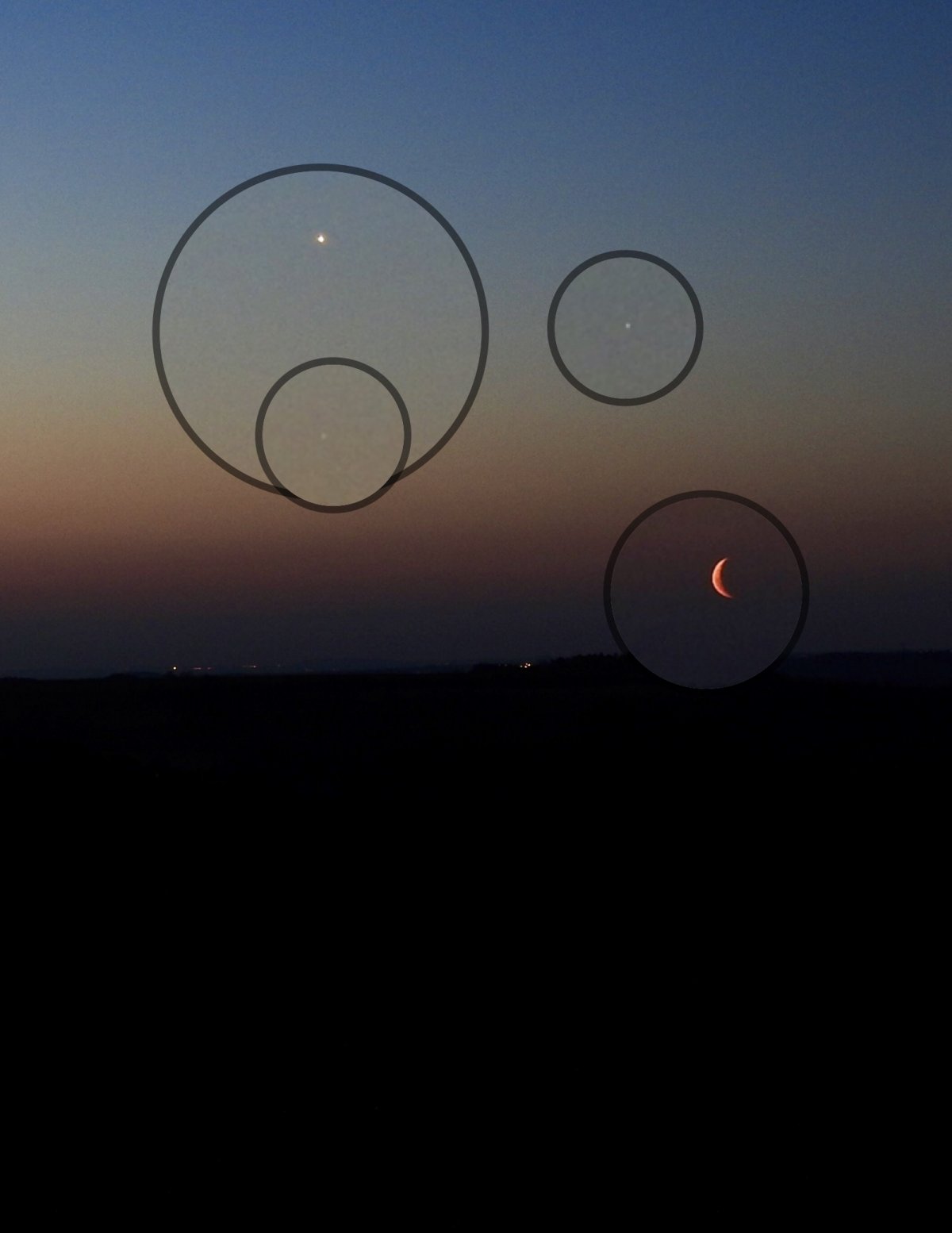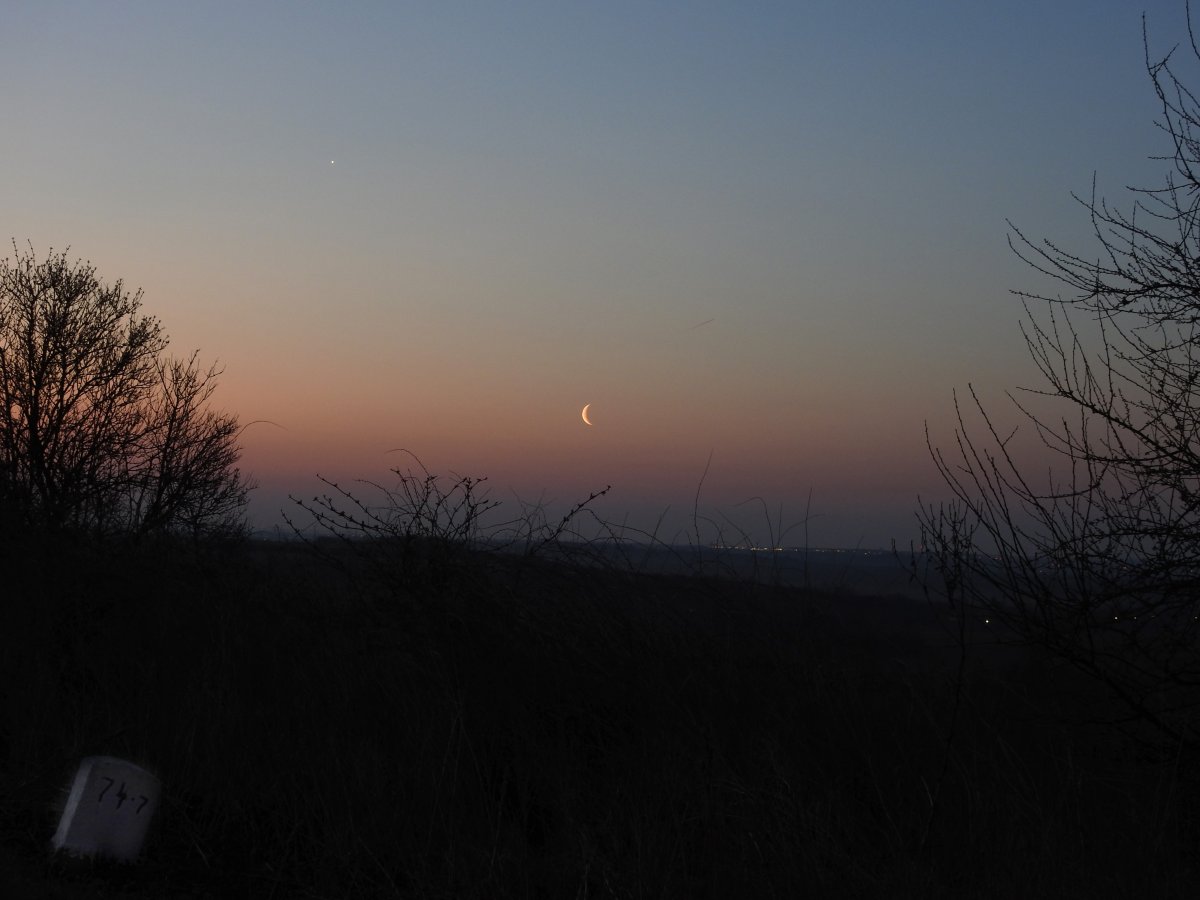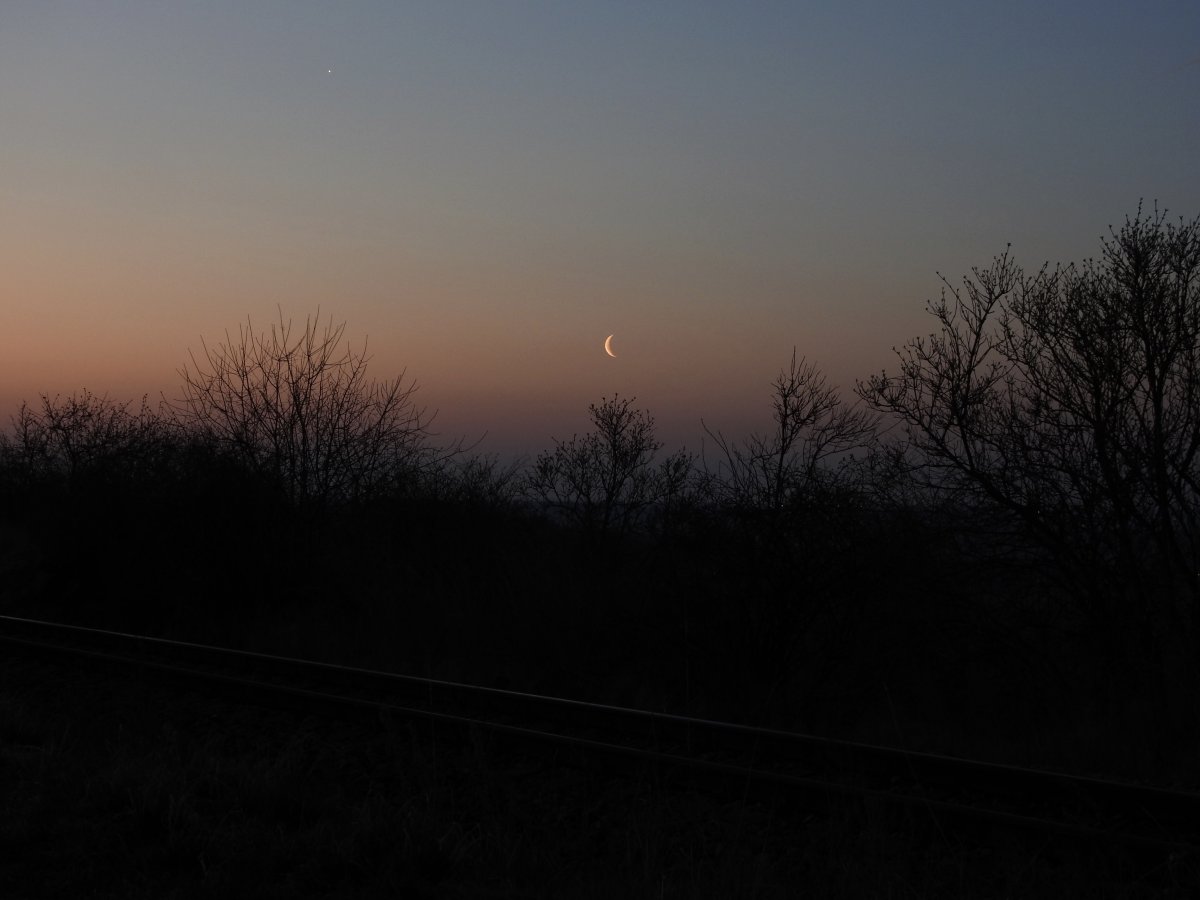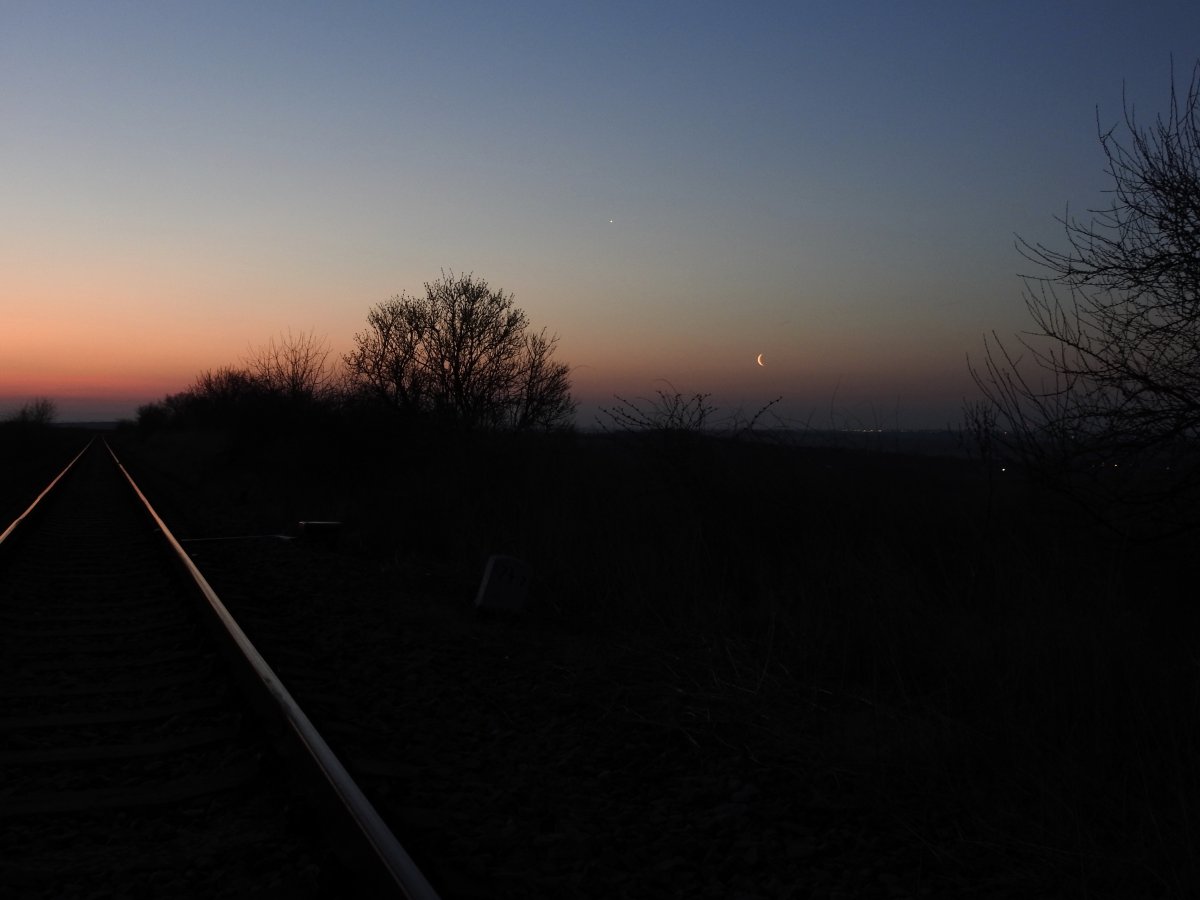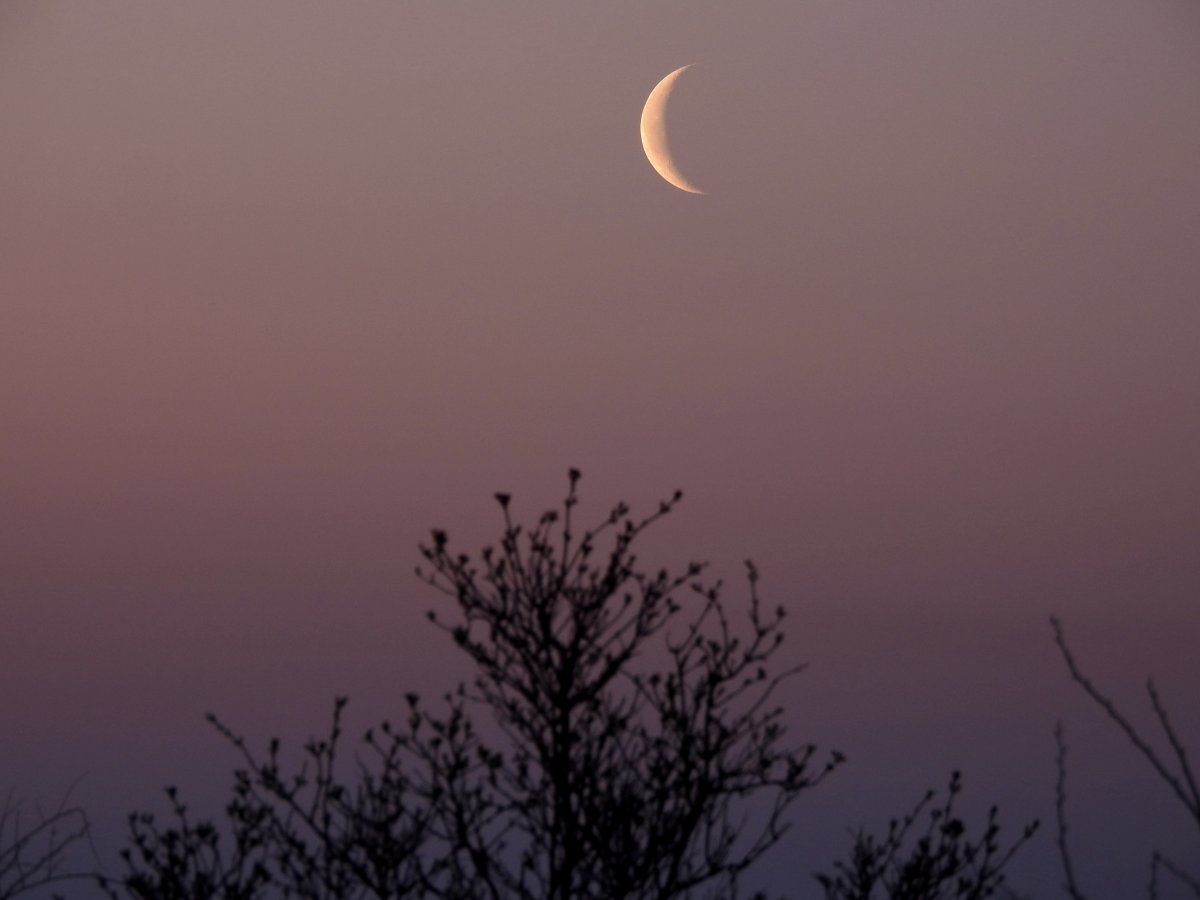Submissions: 2022 March
-
tommasostella
- Ensign
- Posts: 60
- Joined: Mon Nov 11, 2019 4:34 pm
Re: Submissions: 2022 March
Pillars of creation (M16)
https://www.facebook.com/tommaso.m.stella
Copyright: Tommaso Stella
From: Taranto (Italy)
Lights: 900 x 20s @ 320 Gain, 284 Dark, 89 Bias, No Flat
Telescope: Skywatcher 200/800 Wide Photo
Camera: ZWO ASI 224mc
Mount: Skywatcher AZ-EQ6 GT, No Autoguiding.
GPU Aplanatic coma corrector, Optolong L-Pro filter.
Processing: DeepSkyStacker, Photoshop CC, PixInsight
https://www.facebook.com/tommaso.m.stella
Copyright: Tommaso Stella
From: Taranto (Italy)
Lights: 900 x 20s @ 320 Gain, 284 Dark, 89 Bias, No Flat
Telescope: Skywatcher 200/800 Wide Photo
Camera: ZWO ASI 224mc
Mount: Skywatcher AZ-EQ6 GT, No Autoguiding.
GPU Aplanatic coma corrector, Optolong L-Pro filter.
Processing: DeepSkyStacker, Photoshop CC, PixInsight
Ngc 1499
Copyrights: Raul Villaverde, Domingo Pestana and Nicolas Romo.
Our little tribute to Ukraine.
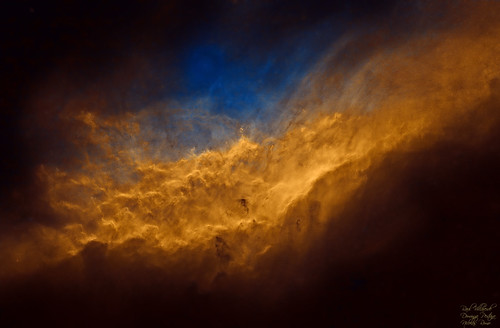 NGC 1499 Starnet 2022 by Raul Villaverde, en Flickr
NGC 1499 Starnet 2022 by Raul Villaverde, en Flickr
Our little tribute to Ukraine.
 NGC 1499 Starnet 2022 by Raul Villaverde, en Flickr
NGC 1499 Starnet 2022 by Raul Villaverde, en Flickr-
KuriousGeorge
- Science Officer
- Posts: 218
- Joined: Wed Dec 30, 2015 7:07 am
- Location: San Diego, CA
- Contact:
Re: Submissions: 2022 March
Copeland's Septet, KG Observatory, Julian, CA.
With the Julian skies still a bit unsteady with variable clouds, I decided to swap the FLI PL16803 CCD with the ASI6200MM Pro CMOS. The latter allows me to move from 15 minute to 1 minute subs to help find "holes" to the universe.
Here I collected 290 1-minute L subs between 1.6" and 2.8". I then kept the best 180 (3 hours) with an average FWHM closer to 2". The 5-minute color subs were all under 3". Although I was hoping to get 6+ hours of sub 2" L for this distant object, I was pleasantly surprised with the deconvolved results. (-:
"Copeland’s Septet is a group of interacting galaxies located in the constellation Leo.The group was named after British astronomer Ralph Copeland, who discovered it in April 1874. It lies at an approximate distance of 400 million light years from Earth."
https://www.astrobin.com/a0st7u/
With the Julian skies still a bit unsteady with variable clouds, I decided to swap the FLI PL16803 CCD with the ASI6200MM Pro CMOS. The latter allows me to move from 15 minute to 1 minute subs to help find "holes" to the universe.
Here I collected 290 1-minute L subs between 1.6" and 2.8". I then kept the best 180 (3 hours) with an average FWHM closer to 2". The 5-minute color subs were all under 3". Although I was hoping to get 6+ hours of sub 2" L for this distant object, I was pleasantly surprised with the deconvolved results. (-:
"Copeland’s Septet is a group of interacting galaxies located in the constellation Leo.The group was named after British astronomer Ralph Copeland, who discovered it in April 1874. It lies at an approximate distance of 400 million light years from Earth."
https://www.astrobin.com/a0st7u/
-
Luca Fornaciari
- Ensign
- Posts: 11
- Joined: Sun Oct 06, 2019 2:01 pm
Re: Submissions: 2022 March
Integration:
Ha 3nm 28x600’’
R 24x120’’
G 24x120’’
B 24x120’’
L-Pro 573x120’’
Total integration: 26h
Location: Maranello (Italy) - From 03/22/2022 to 03/25/2022
With Sky-Watcher 300 f/4, EQ8R-Pro, Ha 3nm, L-pro, R, G, B Filters, ZWO ASI 294MM
Developed with PixInsight and Photoshop 2022
Copyright: Luca Fornaciari
IG : luca_fornaciari_photography
Website: www.lucafornaciarifotografia.com
Frames captured from Carl Sagan Observatory in Maranello (Italy).
Bortle 5 / SQM 19.5
Ha 3nm 28x600’’
R 24x120’’
G 24x120’’
B 24x120’’
L-Pro 573x120’’
Total integration: 26h
Location: Maranello (Italy) - From 03/22/2022 to 03/25/2022
With Sky-Watcher 300 f/4, EQ8R-Pro, Ha 3nm, L-pro, R, G, B Filters, ZWO ASI 294MM
Developed with PixInsight and Photoshop 2022
Copyright: Luca Fornaciari
IG : luca_fornaciari_photography
Website: www.lucafornaciarifotografia.com
Frames captured from Carl Sagan Observatory in Maranello (Italy).
Bortle 5 / SQM 19.5
- carlos uriarte
- Ensign
- Posts: 38
- Joined: Sun Oct 13, 2019 6:17 pm
Re: Submissions: 2022 March
Ctb1 Abell 85. A supernova remmant, 57 h exp time in HOO palette. It's size in the sky is similar to the size of a full moon. It's outer shell has ruptured between the 4 and 5 o'clock position. Originally this was thought to be a Planetary nebula (Abell 85) but in 1971 it was determined that is actually a supernova remmant.
Gear:
Takahashi FSQ 106ED
Atik 460 EX mono
Paramount ME
Filters: Astrodon Ha 130 subs, OIII 97 subs. 900"
August - Setember 21
Process with Pixinsight 1.8.9 and Photoshop CC2022
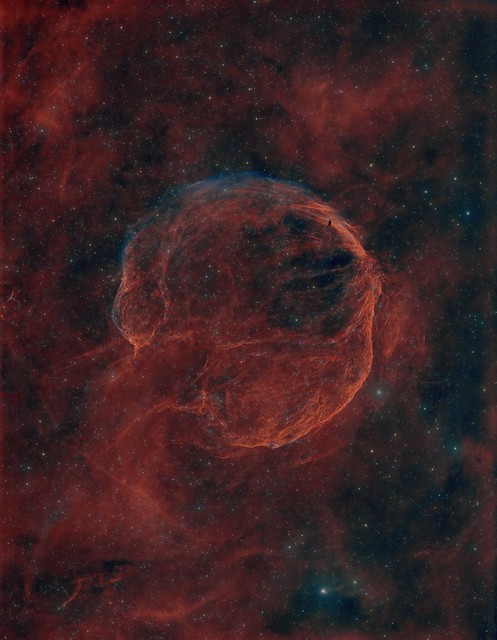 Ctb1 by Carlos Uriarte, en Flickr
Ctb1 by Carlos Uriarte, en Flickr
Gear:
Takahashi FSQ 106ED
Atik 460 EX mono
Paramount ME
Filters: Astrodon Ha 130 subs, OIII 97 subs. 900"
August - Setember 21
Process with Pixinsight 1.8.9 and Photoshop CC2022
 Ctb1 by Carlos Uriarte, en Flickr
Ctb1 by Carlos Uriarte, en Flickr-
KuriousGeorge
- Science Officer
- Posts: 218
- Joined: Wed Dec 30, 2015 7:07 am
- Location: San Diego, CA
- Contact:
Re: Submissions: 2022 March
M106. KG Observatory. Julian, CA.
While capturing 1 minute L subs for Copeland's Septet Thursday evening, seeing started to deteriorate to > 2.5" around midnight. Clouds were forecast for Friday evening, so I figured I'd collect some RGB for a bright and high galaxy. M106 looked like the perfect choice.
I intended to come back and collect more RGB and L next month, but Friday evening turned out to be very special. High thin clouds were moving in around 8 PM as forecast. Not knowing exactly what might happen, I decided to capture 1-minute L subs for M106.
As I've seen before, high thin clouds usually equate to excellent seeing, and that was indeed the case! I kept shooting L subs all night. I was amazed to be able to capture 265 1-minute subs between 1.2" and 2.2" !!! Many were a bit dim behind the wispy clouds, but the vast majority were clear. (-:
What you see here is only 50-minutes of each RGB channel (5-minute subs) with 180 of the lowest FWHM 1-minute L subs (3 hours) having an average FMHW of 1.8". This reduced to 1.3" after deconvolution.
My reference images was https://apod.nasa.gov/apod/ap190317.html
"A swirling disk of stars and gas, M106's appearance is dominated by blue spiral arms and red dust lanes near the nucleus. The core of M106 glows brightly in radio waves and X-rays where twin jets have been found running the length of the galaxy. An unusual central glow makes M106 one of the closest examples of the Seyfert class of galaxies, where vast amounts of glowing gas are thought to be falling into a central massive black hole. M106, a relatively close 23.5 million light years away, spans 60 thousand light years across."
https://www.astrobin.com/ky5r3g/
While capturing 1 minute L subs for Copeland's Septet Thursday evening, seeing started to deteriorate to > 2.5" around midnight. Clouds were forecast for Friday evening, so I figured I'd collect some RGB for a bright and high galaxy. M106 looked like the perfect choice.
I intended to come back and collect more RGB and L next month, but Friday evening turned out to be very special. High thin clouds were moving in around 8 PM as forecast. Not knowing exactly what might happen, I decided to capture 1-minute L subs for M106.
As I've seen before, high thin clouds usually equate to excellent seeing, and that was indeed the case! I kept shooting L subs all night. I was amazed to be able to capture 265 1-minute subs between 1.2" and 2.2" !!! Many were a bit dim behind the wispy clouds, but the vast majority were clear. (-:
What you see here is only 50-minutes of each RGB channel (5-minute subs) with 180 of the lowest FWHM 1-minute L subs (3 hours) having an average FMHW of 1.8". This reduced to 1.3" after deconvolution.
My reference images was https://apod.nasa.gov/apod/ap190317.html
"A swirling disk of stars and gas, M106's appearance is dominated by blue spiral arms and red dust lanes near the nucleus. The core of M106 glows brightly in radio waves and X-rays where twin jets have been found running the length of the galaxy. An unusual central glow makes M106 one of the closest examples of the Seyfert class of galaxies, where vast amounts of glowing gas are thought to be falling into a central massive black hole. M106, a relatively close 23.5 million light years away, spans 60 thousand light years across."
https://www.astrobin.com/ky5r3g/
-
Valerie Liard
- Asternaut
- Posts: 3
- Joined: Sun Oct 24, 2021 9:53 am
SUNSPOT 2976
SUNSPOTS 2975 & 2976
https://i.ibb.co/d0k6WSy/SUN-GIANT-SUNSPOT-2976-SW.jpg
MARCH 27, 2022, 06:56 PM - FRANCE
https://flic.kr/p/2naWEps
V . LIARD P h o t o g r a p h y
( VegaStarCarpentier )
https://i.ibb.co/d0k6WSy/SUN-GIANT-SUNSPOT-2976-SW.jpg
MARCH 27, 2022, 06:56 PM - FRANCE
https://flic.kr/p/2naWEps
V . LIARD P h o t o g r a p h y
( VegaStarCarpentier )
Last edited by bystander on Mon Mar 28, 2022 1:19 pm, edited 1 time in total.
Reason: Please, no hot links to images > 500 kb. Substituted smaller image.
Reason: Please, no hot links to images > 500 kb. Substituted smaller image.
- AVAO
- Commander
- Posts: 787
- Joined: Tue May 28, 2019 12:24 pm
- AKA: multiwavelength traveller
- Location: Zurich, Switzerland
Re: Submissions: 2022 March
Please delete this post.
Sorry...
Last edited by AVAO on Mon Mar 28, 2022 6:33 pm, edited 1 time in total.
Re: Submissions: 2022 March
Kronberger 131 - A mysterious planetary nebula in Auriga
Copyright: Jonathan Talbot
Kronberger 131 (Kn131) is a very faint and mysterious planetary nebula in the constellation Auriga. It measures about 4x3 arcmin in size. Kn 131 also goes by the designation PN G162.9-01.6. Kn 131 is a bipolar planetary and has faint long wing like extensions on one side and smaller appendages on the other side. The main body has stronger HII emission in the center and faint OIII emission on the outside. Some very faint HII emission is to the east and west of the object. This planetary nebula is ridiculously obscure with no other images I could find of it. The image is a crop of the area around the PN and is the result of 44.25hrs of exposure time through RGB Ha and OIII filters.
You can see a larger field of view and image details here: http://www.starscapeimaging.com/Kn131/Kn131.html
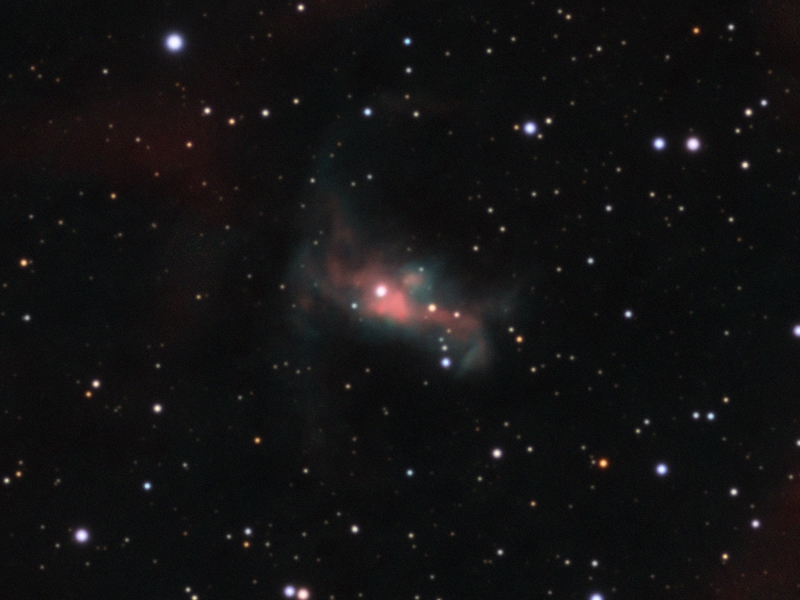
Copyright: Jonathan Talbot
Kronberger 131 (Kn131) is a very faint and mysterious planetary nebula in the constellation Auriga. It measures about 4x3 arcmin in size. Kn 131 also goes by the designation PN G162.9-01.6. Kn 131 is a bipolar planetary and has faint long wing like extensions on one side and smaller appendages on the other side. The main body has stronger HII emission in the center and faint OIII emission on the outside. Some very faint HII emission is to the east and west of the object. This planetary nebula is ridiculously obscure with no other images I could find of it. The image is a crop of the area around the PN and is the result of 44.25hrs of exposure time through RGB Ha and OIII filters.
You can see a larger field of view and image details here: http://www.starscapeimaging.com/Kn131/Kn131.html

-
maphilli14
- Ensign
- Posts: 35
- Joined: Tue May 08, 2012 2:32 am
Re: Submissions: 2022 March
Venus/Saturn/Mars/Lunar/Comet/Titan Conjunction 2022
https://maphilli14.webs.com
Copyright: Michael A. Phillips
https://i.imgur.com/1HHboAr.jpg
https://maphilli14.webs.com
Copyright: Michael A. Phillips
https://i.imgur.com/1HHboAr.jpg
Last edited by bystander on Tue Mar 29, 2022 6:11 am, edited 1 time in total.
Reason: Please, no hot links to images > 500 kb.
Reason: Please, no hot links to images > 500 kb.
-
DustSpeakers
- Asternaut
- Posts: 8
- Joined: Tue Oct 20, 2020 10:35 am
Re: Submissions: 2022 March
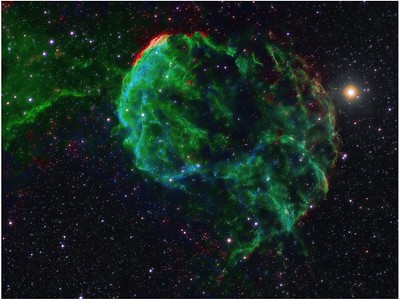
The Jellyfish Nebula ( IC 433, Sh2-248 ) is a supernova remnant located about 5,000 light years from Earth in the constellation of Gemini. It has an angular diameter of 50 arcmin which is about 1.7 full Moon widths. The SNR is abundant in SII (red), Ha (green) and OIII (blue) emissions.
Full resolution at:
Flickr
Astrobin
Acquired over 5 nights on 10 Dec 2021, 24, 25 ,26 ,27 Mar 2022 from my Bortle 5 back garden with Redcat 51 on an iOptron Skyguider Pro (not guided) with ASI 1600 MM Pro mono camera with R, G, B, Ha and OIII filters.
Ha - 3 hr 15 min - in 157 frames of 60s and 120s
OIII - 3 hr 10 min - in 179 frames of 60s and 120s
SII - 3 hrs 15 mins - in 163 frames of 60s and 120s
RGB for stars - 50 x 60s each filter
~12 hrs in total
Processed in APP, StarTools (SHO) and Gimp
DustSpeakers https://www.astrobin.com/users/sjf/
yer a wizard harry
24 shots at 600 seconds each of SH2-142 shot from my backyard with a ZWO ASI2600MC camera, William Optics GT81 telescope, and Losmandy GM811G equatorial mount. Taken on Nov. 15th, 2021. (yes, I'm 4 months behind on image releases)
-
Paulee97
- Ensign
- Posts: 41
- Joined: Thu Sep 22, 2016 4:18 pm
- AKA: Paulee
- Location: Brno, Czech Republic
- Contact:
Re: Submissions: 2022 March
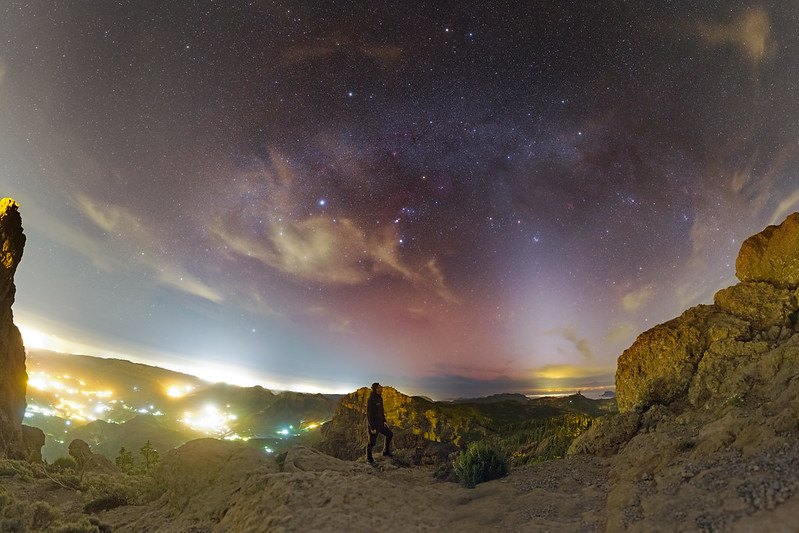
Lights fighting over Gran Canaria
Copyright: Pavel Váňa
Natural (zodiacal light, airglow, Milky way, stars) lights fighting against unnatural lights (light pollution) over Gran Canaria.
Panorama made of 40 pics with each exposed for 15 s at ISO 8000. I used Canon EOS 6D modded with Sigma Art 24 mm f/1.4@2.8.
-
Paulee97
- Ensign
- Posts: 41
- Joined: Thu Sep 22, 2016 4:18 pm
- AKA: Paulee
- Location: Brno, Czech Republic
- Contact:
Re: Submissions: 2022 March
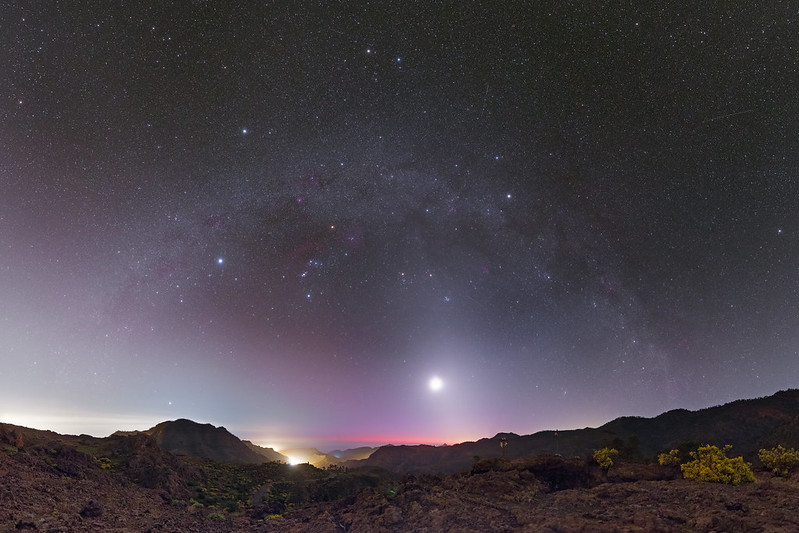 Winter hexagon over Gran Canaria
Winter hexagon over Gran Canaria Copyright: Pavel Váňa
Winter hexagon is an asterism (not a constellation) of the brightest stars which are visible during winter (Rigel, Aldebaran, Capella, Pollux, Procyon and Sirius). Thanks to this asterism you might be able to find some constellations like Orion, Cannis Major, Taurus, etc.
In this picture which was taken in Gran Canaria you can find this asterism, zodiacal light, red airglow and waxing crescent.
Panorama made of 52 single shots with exposure time 13 seconds each at ISO 8000. I used Canon EOS 6D (Baader mod) with Sigma Art 24mm f/1.4@2.5.
Re: Submissions: 2022 March
March 28, 2022:
conjunctions of Venus, Saturn, Mars and the Moon
Location Telce Czech Republic by Jana Konecna
conjunctions of Venus, Saturn, Mars and the Moon
Location Telce Czech Republic by Jana Konecna
Re: Submissions: 2022 March
Solar Activity March 27th 2022 from Kuwait
Hello, As summer slowly comes from around the corner imaging the sun becomes more and more difficult in Kuwait as temperatures can reach up to 50*C so my last few weeks of solar astrophotography are coming to a close!
This was image was taken using a Lunt LS100MT day and night telescope with a televue 2.5x Barlow and an ASI 174mm planetary camera.
The image is composed of 4000 frames of which only 25% has been stacked using AS!3 and processed using IMPGG and Photoshop.
Feel free to check out more of my work on Astrobin or Instagram @mi7sen89
https://www.astrobin.com/users/mi7sen/
Https://www.instagram.com/mi7sen89
https://live.staticflickr.com/65535/519 ... 2878_k.jpg Thank you and clear nights and days!
Abdulmohsen Alreesh
Hello, As summer slowly comes from around the corner imaging the sun becomes more and more difficult in Kuwait as temperatures can reach up to 50*C so my last few weeks of solar astrophotography are coming to a close!
This was image was taken using a Lunt LS100MT day and night telescope with a televue 2.5x Barlow and an ASI 174mm planetary camera.
The image is composed of 4000 frames of which only 25% has been stacked using AS!3 and processed using IMPGG and Photoshop.
Feel free to check out more of my work on Astrobin or Instagram @mi7sen89
https://www.astrobin.com/users/mi7sen/
Https://www.instagram.com/mi7sen89
https://live.staticflickr.com/65535/519 ... 2878_k.jpg Thank you and clear nights and days!
Abdulmohsen Alreesh
Last edited by bystander on Wed Mar 30, 2022 3:27 pm, edited 1 time in total.
Reason: Please, no hot links to images > 500 kb. Substituted smaller image.
Reason: Please, no hot links to images > 500 kb. Substituted smaller image.
Re: Submissions: 2022 March
Abell 31, a pale planetary in Cancer.
Telescope: SW 250/1000 Newtonian
Mount: SW EQ6-R
Camera: Canon EOS 60D
Exp.: 170×10 mins, ISO800
Németh, Róbert
Hungary
Telescope: SW 250/1000 Newtonian
Mount: SW EQ6-R
Camera: Canon EOS 60D
Exp.: 170×10 mins, ISO800
Németh, Róbert
Hungary
-
Paulee97
- Ensign
- Posts: 41
- Joined: Thu Sep 22, 2016 4:18 pm
- AKA: Paulee
- Location: Brno, Czech Republic
- Contact:
Re: Submissions: 2022 March
 Conjunction of three planets over Prague
Conjunction of three planets over Prague Copyright: Pavel Váňa
A beautiful view brought us Monday morning. Rendez-vous of Venus, Mars, Saturn and Moon had started a beautiful day with almost summer temperatures. Such a memorable day!
"like a mote of dust in the morning sky"
Starless image of the area around Markarian’s Chain.
This image of a small portion of the Virgo Constellation was created using a 385mm telescope and a 26mp camera. The shoot was broken down into a 10 pane mosaic. Each pane was shot 31 times at an exposure of 300 seconds from my backyard with a ZWO ASI2600MC camera, William Optics GT81 telescope, and Losmandy GM811G equatorial mount. Taken over several nights throughout last week.
All combined the total integration time of the final image was 25.83 hours. In post processing all the individual stars were removed then the resulting 229mp image was cropped almost in half and reduced to a postable size. In this reduced size copy every speck represents a discernible galaxy in the full size version.
This image of a small portion of the Virgo Constellation was created using a 385mm telescope and a 26mp camera. The shoot was broken down into a 10 pane mosaic. Each pane was shot 31 times at an exposure of 300 seconds from my backyard with a ZWO ASI2600MC camera, William Optics GT81 telescope, and Losmandy GM811G equatorial mount. Taken over several nights throughout last week.
All combined the total integration time of the final image was 25.83 hours. In post processing all the individual stars were removed then the resulting 229mp image was cropped almost in half and reduced to a postable size. In this reduced size copy every speck represents a discernible galaxy in the full size version.
-
tommasostella
- Ensign
- Posts: 60
- Joined: Mon Nov 11, 2019 4:34 pm
Re: Submissions: 2022 March
Seagull nebula (Gum 2) in Hubble palette
https://www.facebook.com/tommaso.m.stella
Copyright: Tommaso Stella
From: Taranto (Italy)
Shooting took place on February 2022 in Taranto (Italy) at about 80m above sea level.
Lights: 21x900s Ha + 26x900s OIII + 12x900s SII
Sky: Bortle 6
Total exposure: 15 h
Telescope: Takahashi FS-60CB + Reducer 0,72x
Camera: QHY 294 Pro Mono
Filters: Optolong Astronomy Filter SHO 3nm
Mount: Skywatcher AZ-EQ6 GT
Processing: DeepSkyStacker, PixInsight, Photoshop CC
https://www.facebook.com/tommaso.m.stella
Copyright: Tommaso Stella
From: Taranto (Italy)
Shooting took place on February 2022 in Taranto (Italy) at about 80m above sea level.
Lights: 21x900s Ha + 26x900s OIII + 12x900s SII
Sky: Bortle 6
Total exposure: 15 h
Telescope: Takahashi FS-60CB + Reducer 0,72x
Camera: QHY 294 Pro Mono
Filters: Optolong Astronomy Filter SHO 3nm
Mount: Skywatcher AZ-EQ6 GT
Processing: DeepSkyStacker, PixInsight, Photoshop CC
-
Sebastian Voltmer
- Ensign
- Posts: 67
- Joined: Tue Jan 17, 2012 11:45 pm
Re: Submissions: 2022 March
Two Spacewalkers Imaged From The Ground
During the spacewalk of the two astronauts Raja Chari and Matthias Maurer the International Space Station appeared shortly after sunset in the bright evening sky over Germany.
This image of the ISS pass was taken on March 23, 2022 under good seeing conditions through my C11 EdgeHD telescope from the hometown of ESA #astronaut Dr. Matthias Maurer. The docked SpaceX Dragon capsule, with which the astronauts of Crew-3 flew to the ISS, is clearly visible.
Three years ago I got to know Matthias Maurer at our SpaceStudio Weltraum-Atelier in Nohfelden, Germany which is located near to Matthias‘ hometown. Additional funfact: I produced the song for his ISS mission, "Cosmic Kiss”: https://youtu.be/tQYysJw7W_s
For the local press in Germany, I first published an initial photo highlighting where Matthias Maurer appeared on the ISS. Due to my time constraints, I released this version right away on the internet, which then went viral, while I continued to work on the final image version with both highlighted astronauts.
Already two days after the spacewalk happened, Philip Smith contacted me. He is a world well-known photographer of all things ISS and has been published in many forms of media. Philip Smith with his ISS obsession, noticed on my picture that NASA astronaut Raja Chari is also detectable - on the robot arm “Canadarm2” - and he created a wonderful combination picture shown here with an insert from the #NASA livestream: https://youtu.be/uZqaTsbDcgU
I feel like I just made a once in a life time historic image It's probably the first ground based image showing two spacewalkers on the ISS at the same time.
It's probably the first ground based image showing two spacewalkers on the ISS at the same time.
Dr. Sebastian Voltmer, www.voltmer.photo
During the spacewalk of the two astronauts Raja Chari and Matthias Maurer the International Space Station appeared shortly after sunset in the bright evening sky over Germany.
This image of the ISS pass was taken on March 23, 2022 under good seeing conditions through my C11 EdgeHD telescope from the hometown of ESA #astronaut Dr. Matthias Maurer. The docked SpaceX Dragon capsule, with which the astronauts of Crew-3 flew to the ISS, is clearly visible.
Three years ago I got to know Matthias Maurer at our SpaceStudio Weltraum-Atelier in Nohfelden, Germany which is located near to Matthias‘ hometown. Additional funfact: I produced the song for his ISS mission, "Cosmic Kiss”: https://youtu.be/tQYysJw7W_s
For the local press in Germany, I first published an initial photo highlighting where Matthias Maurer appeared on the ISS. Due to my time constraints, I released this version right away on the internet, which then went viral, while I continued to work on the final image version with both highlighted astronauts.
Already two days after the spacewalk happened, Philip Smith contacted me. He is a world well-known photographer of all things ISS and has been published in many forms of media. Philip Smith with his ISS obsession, noticed on my picture that NASA astronaut Raja Chari is also detectable - on the robot arm “Canadarm2” - and he created a wonderful combination picture shown here with an insert from the #NASA livestream: https://youtu.be/uZqaTsbDcgU
I feel like I just made a once in a life time historic image
Dr. Sebastian Voltmer, www.voltmer.photo
-
Sebastian Voltmer
- Ensign
- Posts: 67
- Joined: Tue Jan 17, 2012 11:45 pm
Re: Submissions: 2022 March
25 Year Anniversary of comet Hale-Bopp!
Back then I used fully mechanical analog cameras and developed the films directly in the bathroom of the alpine Hotel.
Scanned photographs of comet C/1995 O1 (Hale-Bopp) taken from Gornergrat, Switzerland, using analog Minolta cameras:
(1) 300mm-f.l. lens, 1997 April 1, 15-min exposure on Kodak GPY 400 (hyp.) film.
(2) 50mm-f.l. lens, 20-min exposure, 1997 April 3, Kodak EPP 100 film.
https://www.instagram.com/p/CRrBq_Qs4T_/
Dr. Sebastian Voltmer / www.voltmer.photo
Back then I used fully mechanical analog cameras and developed the films directly in the bathroom of the alpine Hotel.
Scanned photographs of comet C/1995 O1 (Hale-Bopp) taken from Gornergrat, Switzerland, using analog Minolta cameras:
(1) 300mm-f.l. lens, 1997 April 1, 15-min exposure on Kodak GPY 400 (hyp.) film.
(2) 50mm-f.l. lens, 20-min exposure, 1997 April 3, Kodak EPP 100 film.
https://www.instagram.com/p/CRrBq_Qs4T_/
Dr. Sebastian Voltmer / www.voltmer.photo
-
Sebastian Voltmer
- Ensign
- Posts: 67
- Joined: Tue Jan 17, 2012 11:45 pm
Re: Submissions: 2022 March
Comet Hale-Bopp exactly 25 Years ago!
The small town below the clouds is Sion in the Rhône Valley.
Camera, lens:
Minolta SLR, 50 mm f/1,7
Film: Kodak GPY400
Dr. Sebastian Voltmer, www.voltmer.photo
The small town below the clouds is Sion in the Rhône Valley.
Camera, lens:
Minolta SLR, 50 mm f/1,7
Film: Kodak GPY400
Dr. Sebastian Voltmer, www.voltmer.photo
Re: Submissions: 2022 March
All Galaxies Starless Hickson 44 Region
This is the Hickson 44 galaxy group region in Leo. It is a 10-hour image captured without a filter. I carefully removed all of the stars and starlight artifacts by hand in Photoshop while preserving everything that was fuzzy or out-of-round. Lots of galaxies!
The small image here doesn't reveal all of the faint fuzzies so go to ABin for larger images and info.
https://www.astrobin.com/q3ez6z/
I hope you enjoy!
Nick Pavelchak
This is the Hickson 44 galaxy group region in Leo. It is a 10-hour image captured without a filter. I carefully removed all of the stars and starlight artifacts by hand in Photoshop while preserving everything that was fuzzy or out-of-round. Lots of galaxies!
The small image here doesn't reveal all of the faint fuzzies so go to ABin for larger images and info.
https://www.astrobin.com/q3ez6z/
I hope you enjoy!
Nick Pavelchak
Re: Submissions: 2022 March
Hello All!
Huge prominence off of our gorgeous star! I may be incorrect but i believe this is the result of an X-class flare or the flare itself. While i had wished to get a full solar disc image with the prom showing, unfortunately i had trouble pulling the data out without causing too much noise and artefacts showing up. However, i am very pleased with this outcome and i hope you find it as amazing as i do.
The image was taken from Kuwait City in the Middle East using a Lunt LS100MT, 2.5x televue barlow, and an ASI 174mm. The image consists of 4000 frames in which of those i stacked 20% and processed in IMPGG and Photoshop.
Feel free to follow more of on Instagram @mi7sen89 or on astrobin user: mi7sen
Thank you and clear skies!
Abdulmohsen Alreesh
Huge prominence off of our gorgeous star! I may be incorrect but i believe this is the result of an X-class flare or the flare itself. While i had wished to get a full solar disc image with the prom showing, unfortunately i had trouble pulling the data out without causing too much noise and artefacts showing up. However, i am very pleased with this outcome and i hope you find it as amazing as i do.
The image was taken from Kuwait City in the Middle East using a Lunt LS100MT, 2.5x televue barlow, and an ASI 174mm. The image consists of 4000 frames in which of those i stacked 20% and processed in IMPGG and Photoshop.
Feel free to follow more of on Instagram @mi7sen89 or on astrobin user: mi7sen
Thank you and clear skies!
Abdulmohsen Alreesh

